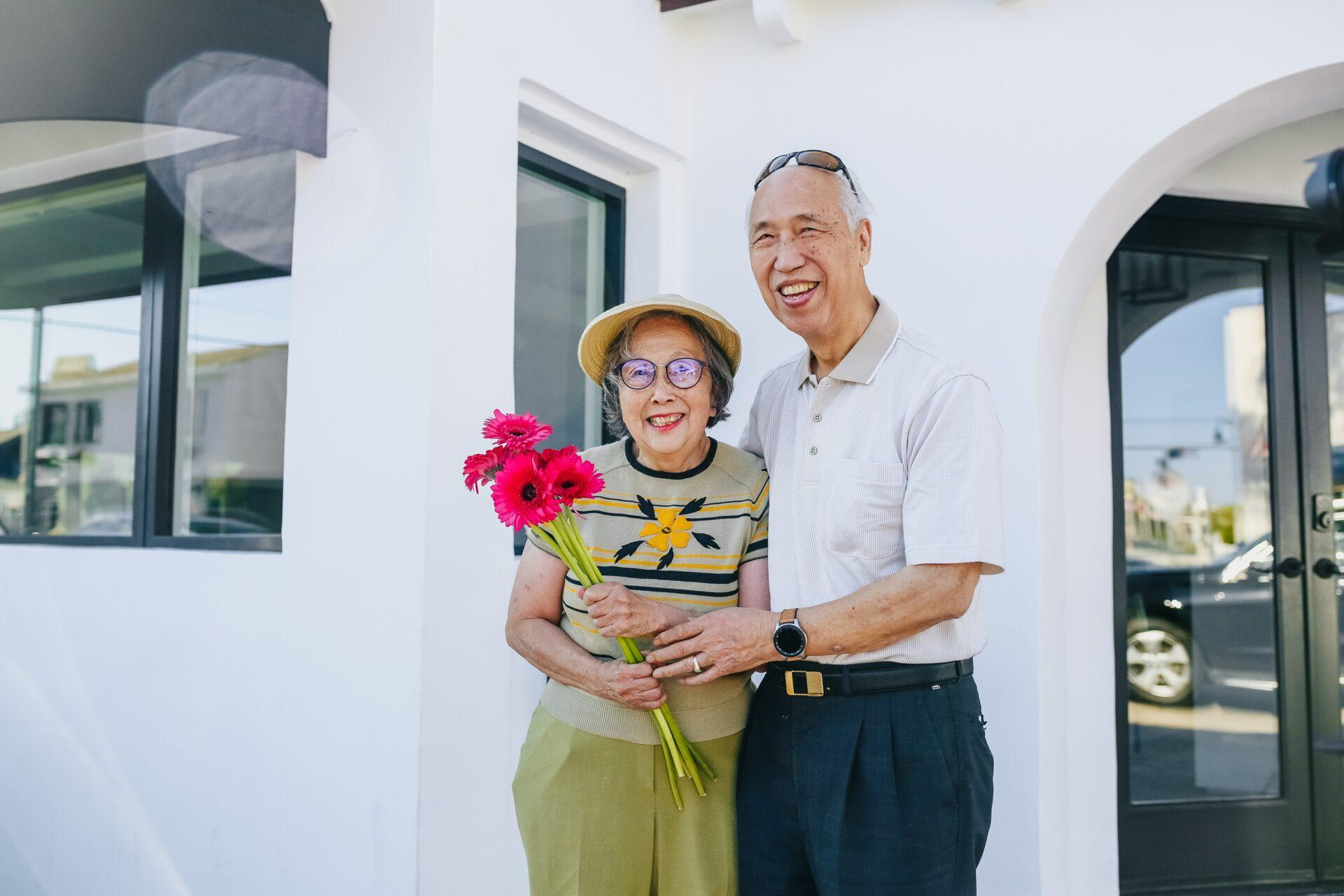Aging is a journey, a blend of new experiences, wisdom, and challenges. One constant, regardless of age, is our inherent need for social connection. A vibrant social life is not just a luxury, but a necessity, especially as we age. This article offers insightful tips for staying connected, enhancing mental well-being, and keeping loneliness at bay during your golden years. From embracing technology and engaging with your community to cultivating existing relationships and acknowledging feelings of loneliness, we delve into various ways to enrich your social life and promote healthy aging. Aging and social life: two things that get better with time.
Technology for Social Connection: Bridge the Distance
Technology offers incredible tools for staying in touch with loved ones, meeting new people, and exploring interests. While it can feel daunting to some, learning to use these tools can open up a world of social opportunities.
Not only can technology help you stay connected with friends and family, but it can also introduce you to new communities. Online platforms offer numerous groups and forums based on various interests, from knitting to literature to travel. Joining such groups can lead to meaningful conversations and even friendships.
If the idea of navigating the latest social media platforms feels overwhelming, remember that it’s okay to start small. You might begin by learning how to send emails, then gradually move on to video calls and social networks. There are also numerous online resources, like tutorials on YouTube, that can guide you step by step.

Importantly, don’t be afraid to ask for help. Loved ones or tech-savvy friends are often more than happy to show you the ropes. Once you’re comfortable, you’ll be amazed at how technology can shrink distances and keep you connected with friends and family.
When exploring these platforms, remember to protect your online privacy. Use strong, unique passwords, don’t share sensitive information, and always check the privacy settings on social media sites. With these safeguards, you can confidently navigate the digital world.
Facts: Research shows that internet use can help reduce feelings of loneliness and increase feelings of happiness in older adults. Social media, video calls, and online groups provide platforms for engagement.
Tips for Better Living: Take the leap and learn how to use a new technology, such as video calling apps like Skype or Zoom. Many community centers and libraries offer free classes for seniors on using technology.
Stay Active in Your Community: Foster Connections
Engaging with your local community can provide a sense of belonging, purpose, and connection. Engaging with your community can also provide a sense of accomplishment. Many volunteer organizations provide opportunities to contribute meaningfully to your local area. Whether it’s serving food at a local shelter or helping to maintain a community garden, these experiences can add a fulfilling dimension to your social life.
Additionally, community engagement can have ripple effects. As you become a familiar face, you might find yourself having friendly conversations more often, even during routine activities like grocery shopping or walking in the park. This sense of community can significantly enhance your quality of life.
Beyond clubs and classes, there are countless ways to engage with your community. You might visit local farmers markets, join neighborhood cleanups, or attend community theater performances. Many churches, mosques, and synagogues also offer social events and opportunities for volunteering.

Remember that socializing doesn’t always require a big group. Even activities like walking a neighbor’s dog or chatting with the local shop owner can foster a sense of connection and belonging.
Facts: Studies have found that social participation can have a positive impact on the physical and mental health of older adults.
Tips for Better Living: Look for local clubs, volunteer organizations, or classes that interest you. Whether it’s a book club, a gardening group, or a local charity, these communities can offer rewarding interactions.
Cultivate Existing Relationships: Strengthen Bonds
Staying connected isn’t just about making new friends; it’s also about nurturing existing relationships. Cultivating relationships also involves good communication. Be open about your feelings and experiences, and encourage your friends and family to do the same. This two-way exchange can deepen your connections and provide emotional support.
It’s also important to cultivate a balance of give-and-take in your relationships. This doesn’t mean keeping score, but rather ensuring that both parties feel valued and heard. This balance can strengthen your bonds and lead to more fulfilling relationships.
Just as plants need regular watering to thrive, relationships need consistent attention. Remember birthdays, anniversaries, and other special occasions. Send a letter, an email, or even a small gift to let your loved ones know you’re thinking of them.
Don’t underestimate the power of shared experiences. Plan activities that you can look forward to together, like watching a movie simultaneously while on a video call or reading the same book and discussing it.
Facts: Strong social relationships can increase longevity and enhance the quality of life.
Tips for Better Living: Regularly reach out to friends and family. Schedule recurring phone calls or video chats.
Lifelong Learning: Expand Your Horizons
Lifelong learning offers opportunities to meet like-minded individuals while keeping your mind sharp. Lifelong learning can also improve your cognitive health. Engaging in new subjects and skills can stimulate your brain, improving memory and cognitive function. It can even slow cognitive aging, contributing to overall brain health.
Moreover, lifelong learning can boost your self-confidence. As you acquire new skills and knowledge, you’ll likely feel a sense of accomplishment and self-efficacy. This can enhance your overall well-being and quality of life.
Lifelong learning is not limited to academic subjects. You could learn to play a musical instrument, speak a new language, or even master the art of gourmet cooking. The joy is in the journey, not just the destination.
Additionally, learning is a two-way street. You could share your own experiences and skills by mentoring younger generations or teaching a class. This can be a fulfilling way to give back to your community.
Facts: Lifelong learning can contribute to cognitive health and give a sense of purpose.
Tips for Better Living: Consider enrolling in a class that interests you. Many universities offer free or low-cost courses for seniors, and online platforms like Coursera or Khan Academy provide a wide range of subjects to explore.
Mind Your Mental Health: Acknowledge Feelings of Loneliness
Loneliness is a common, yet often overlooked issue among older adults. It’s important to recognize and address these feelings. It’s also beneficial to develop a toolbox of self-care practices. This might include mindfulness techniques, like meditation or deep-breathing exercises, which can help manage feelings of loneliness or stress. Physical activity, such as regular walks or yoga, can also boost your mood and well-being.
Remember, it’s okay to seek help. If feelings of loneliness persist or lead to feelings of depression, it’s important to reach out to a mental health professional. They can provide strategies and tools to help you navigate these feelings. It’s never a sign of weakness to ask for help, but rather a step towards resilience and healthier aging.

Finally, remember that it’s okay to feel lonely sometimes. What matters is how you respond to those feelings. Apart from reaching out to others, you can also engage in activities that bring you joy and peace. This could be anything from painting to meditating to walking in nature.
Consider professional help if feelings of loneliness persist. Therapists and counselors are trained to help you navigate these emotions and develop strategies to manage them effectively. Many even offer teletherapy services that you can access from the comfort of your home.
Facts: Loneliness can have serious health implications, including increased risk of heart disease, depression, and cognitive decline.
Tips for Better Living: If you’re feeling lonely, reach out to someone. Speak with a trusted friend, family member, or mental health professional. Many hotlines provide immediate, anonymous support.
Remember, socializing should be enjoyable, not stressful. Find activities and connections that bring you joy and enrich your life. Age is just a number, and it’s never too late to make new friends, learn new skills, or start a new hobby. Stay connected, stay vibrant, and enjoy the journey of healthy aging.
Aging and Social Life: Healthy Aging Tips
In conclusion, maintaining a vibrant social life is an essential part of healthy aging. It might require some effort, particularly in a digital world, but the rewards — increased happiness, reduced stress, and a sense of belonging — are well worth it. So go ahead and connect, engage, and enjoy your golden years to the fullest. After all, the best time to start is now.
Read more at Healthy Aging: Strategies for Aging Well: How to Maintain Independence in Old Age
Disclaimer: The information provided in this blog post is for educational purposes only and should not be considered as medical advice. Consult with your healthcare professional for personalized guidance and recommendations regarding your specific health needs and conditions.





